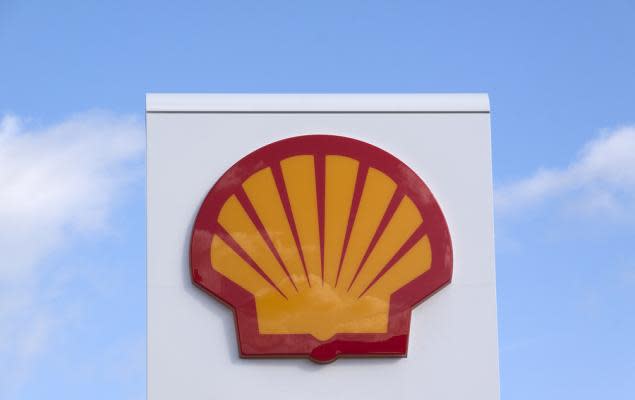Shell (SHEL) Advances Carbon Capture Initiatives in Canada

Shell plc SHEL, the British energy major, announced that its Canadian subsidiary, Shell Canada, has made a positive final investment decision (FID) for the Polaris carbon capture project. The project at the Shell Energy and Chemicals Park, Scotford in Alberta, is being developed to capture an estimated 650,000 tons of carbon dioxide from Shell’s refinery and chemical complex in Scotford.
The captured emissions from Polaris will account for 40% of the refinery's emissions and 22% of that from the chemical complex at Scotford. Shell also confirmed its plan to proceed with the Atlas Carbon Storage Hub in collaboration with ATCO Enpower, both holding a 50% stake each. This hub will connect to Polaris via a 22-kilometre pipeline, providing permanent underground storage for the captured CO2.
Polaris marks Shell’s second carbon capture and storage project in Canada. The first successful project, named Quest, had an estimated cost of $1.3 billion. Wrapped up in 2015, the project captured and stored approximately 1 million tons of CO2 per year from the Scotford upgrader since then. The $1.3-billion project received substantial financial support, including $745 million from the Alberta government and $120 million from the federal government.
Shell’s decision to move ahead with the Polaris carbon capture project has been greatly influenced by the finalization of the federal carbon capture sequestration tax credit. The tax credit was announced in 2022, but received the royal assent only recently. This implies that companies will now be able to apply for and claim credit to cover certain capital costs associated with the construction of these facilities.
Challenges and Skepticism Surrounding CCS Technology
The carbon capture and storage (CCS) technology is aimed at capturing harmful carbon emissions at the source and storing them underground. This technology, however, involves high costs. Several CCS projects across Canada have been scrapped or canceled even after receiving substantial investments from Ottawa and provincial governments. The high costs associated with CCS continue to fuel skepticism within corporations about investing in this technology without adequate support from the government.
In fact, the Pathways Alliance project, the largest proposed carbon capture project in Canada, has not been able to secure a final investment decision yet. The proposal, worth $16.5 billion, was put forward by a group of oil sands companies. Similarly, Capital Power Corporation shelved its plans for the proposed $2.4-billion carbon capture and storage project at the Genesee natural gas-fired power plant, stating economic challenges as the reason despite the technical feasibility of the project.
CSS is projected to play a central role in the decarbonization of Canada’s oil and gas sector. Notably, as per Canada’s climate plan, carbon capture should contribute to a reduction of up to 16 million tons in emissions by 2030. However, despite its potential, critics have repeatedly warned that the technology has faced numerous challenges and setbacks, and as a result, Canada should not rely heavily on this technology to achieve its climate goals.
Shell's Commitment to Decarbonization
Despite the several challenges (including high costs that lead to cancellations) faced by CCS projects in Canada, Shell Canada remains committed to the technology. The company views Polaris as an integral part of its broader decarbonization strategy and a critical technology for meeting its commitments under the Paris Agreement.
Shell expects to leverage its experience in carbon capture from the Quest project and build on its success. With the favorable fiscal initiatives and regulations available currently, Shell has shown increased confidence in the Polaris project. The project is critical for Shell to achieve its commitment to decarbonize its Scotford facility.
The emissions captured by the Polaris project will be stored 2 kilometers in the underground sandstone formation that is used for storage by the Quest facility, known as the Basal Cambrian Sands. Since 2015, the Quest facility has stored 9 million tons of CO2 at lower-than-expected costs, although its CO2 capture rate is 77%, below the initially announced 90%.
Zacks Rank and Key Picks
Currently, SHEL carries a Zacks Rank #3 (Hold).
Some better-ranked stocks in the energy sector are Archrock Inc. AROC, SM Energy SM and Hess Midstream Partners LP HESM. Archrock presently sports a Zacks Rank #1 (Strong Buy), while SM Energy and Hess Midstream carry a Zacks Rank #2 (Buy) each. You can see the complete list of today’s Zacks #1 Rank stocks here.
Archrock is an energy infrastructure company based in the United States, with a focus on midstream natural gas compression. It provides natural gas contract compression services and generates stable fee-based revenues.
SM Energy is an upstream energy firm operating in the prolific Midland Basin region and the South Texas region. For 2024, the company expects its production to increase from the prior-year reported figure, signaling a bright production outlook.
Hess Midstream owns, operates, develops and acquires a wide range of midstream assets, providing services to Hess Corporation and other third-party customers. The partnership has a stable fee-based revenue model secured via long-term commercial contracts. Since Hess Midstream operates through 100% fee-based contracts, it is exposed to minimal commodity price risks.
Want the latest recommendations from Zacks Investment Research? Today, you can download 7 Best Stocks for the Next 30 Days. Click to get this free report
SM Energy Company (SM) : Free Stock Analysis Report
Archrock, Inc. (AROC) : Free Stock Analysis Report
Hess Midstream Partners LP (HESM) : Free Stock Analysis Report
Shell PLC Unsponsored ADR (SHEL) : Free Stock Analysis Report

 Yahoo Finance
Yahoo Finance 